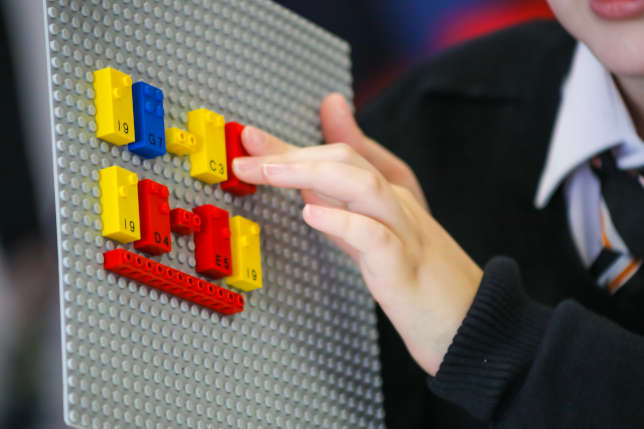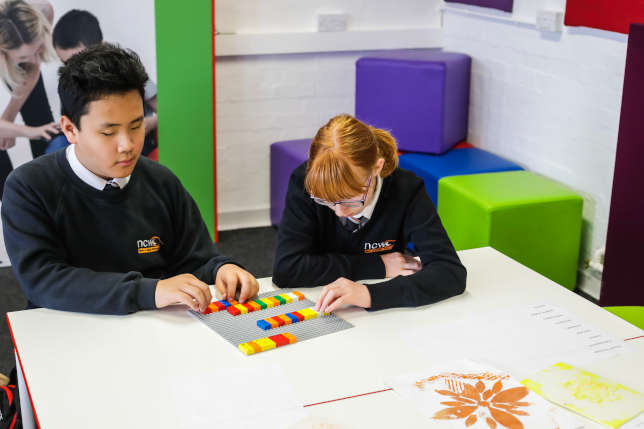LEGO Launches Customized Bricks to Help Students Learn Braille
The LEGO Foundation and LEGO Group are collaborating with blind associations from around the world to launch LEGO Braille Bricks.

In the United States, there has been a rapid decline in the number of visually impaired and blind children learning braille, going from over 50 percent in the 1950s to 10 percent today according to a report from the National Federation of the Blind . The LEGO Foundation and LEGO Group are teaming up with blind associations from Denmark, Brazil, U.K. and Norway to test LEGO Braille Bricks, a new project to help children learn how to read using LEGOs.
LEGO Braille Bricks are molded with the same number of individual studs used for individual letters and numbers in the braille alphabet. Each brick will also feature a printed letter or character to ensure that sighted teachers, students and family members can interact on equal terms.

“With thousands of audiobooks and computer programs now available, fewer kids are learning to read Braille,” said Philippe Chazal, treasurer of the European Blind Union. “This is particularly critical when we know that Braille users often are more independent, have a higher level of education and better employment opportunities. We strongly believe LEGO Braille Bricks can help boost the level of interest in learning Braille, so we’re thrilled that the LEGO Foundation is making it possible to further this concept and bring it to children around the world.”
The solution is currently being tested in Danish, Norwegian, English and Portuguese and testing is expected in German, French and Spanish in the third quarter of 2019. The final LEGO Braille Bricks kit is expected to launch in the 2020 and it will contain approximately 250 LEGO Braille Bricks covering the full alphabet, numbers 0-9 and select math symbols.
More information about the project can be found here.
About the Author
 Sara Friedman is a reporter/producer for Campus Technology, THE Journal and STEAM Universe covering education policy and a wide range of other public-sector IT topics.
Sara Friedman is a reporter/producer for Campus Technology, THE Journal and STEAM Universe covering education policy and a wide range of other public-sector IT topics.
Friedman is a graduate of Ithaca College, where she studied journalism, politics and international communications.
Friedman can be contacted at [email protected] or follow her on Twitter @SaraEFriedman.
Click here for previous articles by Friedman.